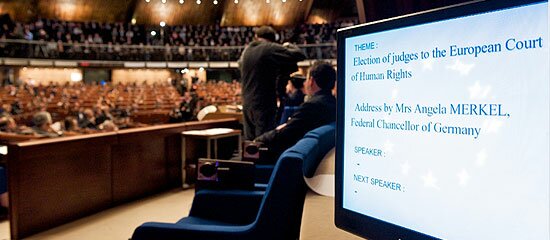The democratic conscience of Greater Europe

The Assembly brings together 324 men and women from the parliaments of the Council of Europe’s 47 member states. Though it contains many voices, reflecting political opinion across the continent, its mission is to uphold the shared values of human rights, democracy and the rule of law that are the “common heritage” of the peoples of Europe.
A right of scrutiny
It holds governments to account over their human rights records, and presses states to achieve and maintain democratic standards, both in Europe and – increasingly – in neighbouring regions.
A hotbed of ideas
It is a factory of radical ideas for improving Europe’s laws and practices, a “motor” for the Council of Europe and a guardian of the European Convention on Human Rights, which originated in the Assembly.
A forum for debate
It is a forum for sometimes heated debate on key political and social issues facing the continent, helping to head off conflict and encourage reconciliation.
Though its texts are not binding, the Assembly speaks on behalf of 830 million Europeans and the 47 Council of Europe governments must give a collective reply. It is the democratic conscience of Greater Europe.
Parliamentary Assembly in brief
Powers
PACE uncovers human rights violations, “monitors” whether states keep their promises, and demands answers from Presidents and Prime Ministers. It can also recommend sanctions.
Achievements
Whether ending executions in Europe, helping ex-Communist countries towards democracy, or creating the European flag, PACE has been a “motor” of positive change for more than 60 years.
Origins and history
The idea for a “Council of Europe” – bringing together the whole continent’s legislators on an equal footing – was conceived in the depths of the second world war, predating the EU.
